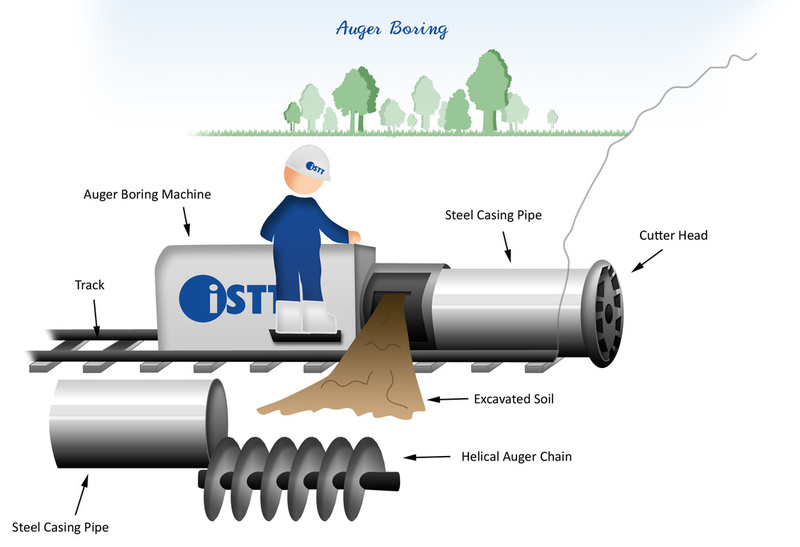Auger boring is generally used to install steel casing pipe in relatively soft stable ground conditions such as clay or soils with contained cobbles located above the water table. The auger boring process retains the soils within the casing, which reduces the likelihood of ground settlement from excavation, making auger boring a popular option for installing utilities under railroads, highways, and levies where settlement is a concern.
The auger boring process employs an auger boring machine to rotate an auger chain or flight positioned within a casing pipe and fitted to a cutter head at the front of the casing. The rotating cutter head, which is slightly larger in diameter than the casing pipe, excavates the soil in front of the casing. The soil is transported back to the machine via the helical auger chain where the soil is removed by hand or machine. The auger boring machine advances along a track, which is aligned to drive the casing pipe on the designed installation line.
Once the machine reaches the end of the track arrangement, the auger chain is disconnected from the machine and the machine is moved back to the original starting point on the track where a new casing segment is welded to the existing casing pipe, and a new auger chain connected to the machine and to the existing chain/cutter head. The excavation and thrust process is repeated until the project is completed. The auger chain is then withdrawn from the casing pipe and the pipe is cleaned of all remaining soil and ready to use.










